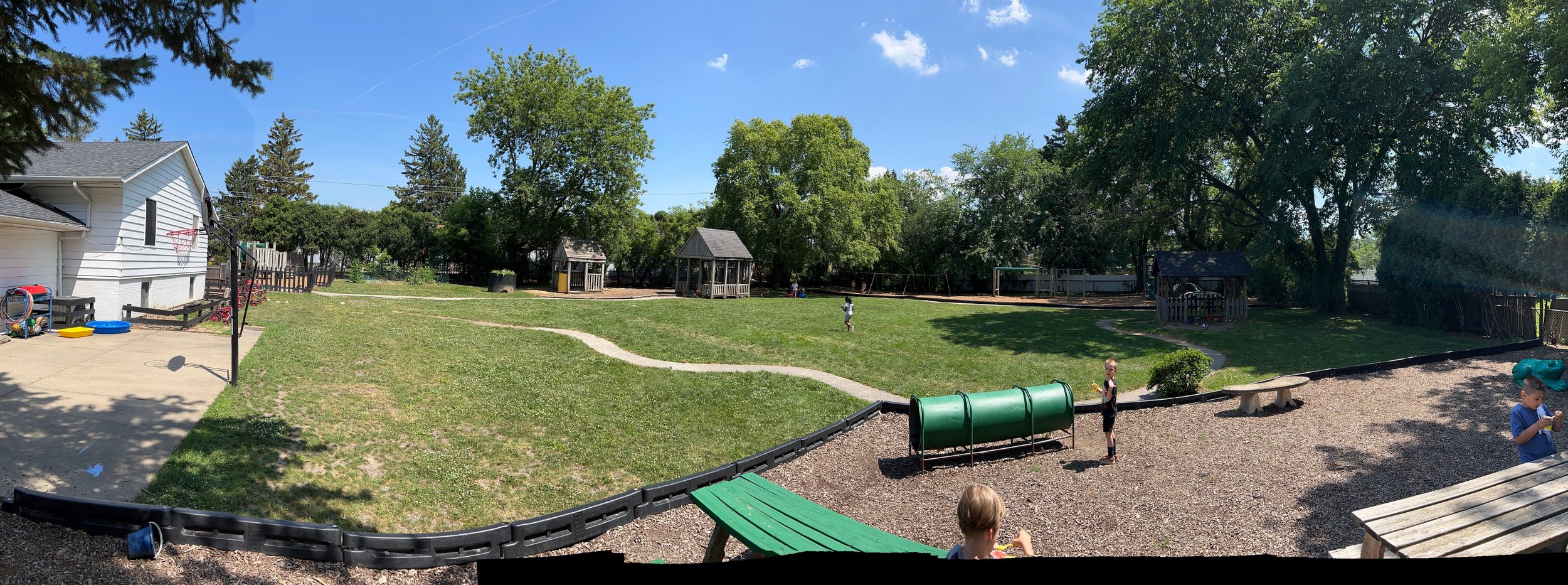About Us
Program content is a dynamic combination of teacher-guided and child-initiated learning activities.
Through skillful observation of each child, Academy teachers extend a child's development by providing experiences that help them make connections with what they already know and can achieve.
Teachers plan meaningful integrated activities to meet four categories of curriculum goals for each child:
• Skills - Developing large and small muscles, manners, habits, and other practices related to positive relationships and living.
• Knowledge - Developing foundations of math, science, social studies, problem solving abilities, language arts, music, and art.
• Feelings - Developing feelings of trust, adequacy, competence, acceptance and self-esteem.
• Dispositions - Developing tendencies related to literacy (focused participation, risk taking, hypothesis testing, persistence, and self-regulation) and toward creative thinking, curiosity, and learning.

Acorn Oaks Academy works to develop strong lines of communication between the school and parents. Formal conferences are scheduled throughout the year and the staff is available for informal meetings on an ongoing basis. In addition, a parent board works closely with the school's management to ensure an even greater ongoing flow of communications and the development of new ideas.
Features
-
Private Playground
-
Secure Entryways
-
Transportation to Public Schools
-
-
Average Staff Tenure of 8 Years
Our Philosophy:
"Each child is a unique and complex person. We will support and celebrate children as they move outside their own family circle while providing them every opportunity to learn and explore the world around them."
Discipline Policy:
"It is the goal of Acorn Oaks Academy to develop a positive self image in each child by setting limits which will also foster each child's physical, social, emotional and intellectual development."
Health Policy:
Acorn Oaks Academy requests that you leave your child home if they exhibit any of the following signs:
• A fever with a temperature of 101 degrees or higher.
• They have diarrhea, defined as runny, watery or bloody stools.
• They have vomited two or more times in a 24-hour period.
• They have some type of body rash with a fever.
• They have a sore throat with fever and/or swollen glands.
• They exhibit severe coughing in which the child gets red or blue in the face, or makes high-pitched whooping sound after coughing.
• Their eye(s) have a discharge defined as a thick mucus or pus draining from the eye, or their eyes are pink.
• Their skin and/or eye(s) are yellowish in color.
• The child is irritable, continuously crying, or requires more attention than can be provided without compromising the care of other children in their class.
